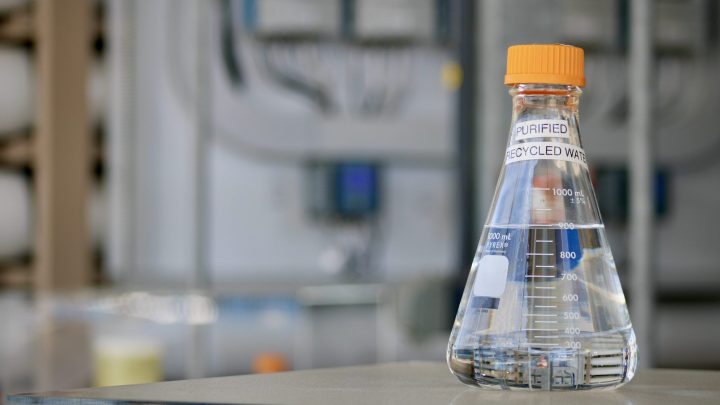
Water-short cities in the West want to use every drop, even from sewage
Water-short cities in the West want to use every drop, even from sewage

Cities in the arid West are not going to get more water any time soon. So they need to squeeze every last drop out of the supply they already have. Water-strapped communities along the Colorado River are trying to make it possible to turn treated wastewater into drinkable tap water. Take Castle Rock, Colorado.
“We pay a lot of money to get a water supply,” said Mark Marlowe, Castle Rock’s water director. “The last thing we want to do is just put it back in the river after we use it and let it go downstream for someone else to use it for free.”
The suburb between Denver and Colorado Springs is growing fast. Castle Rock and cities around the region are increasingly stressed about keeping the taps flowing. Marlowe said technology has come far enough that wastewater doesn’t have to get pumped into rivers or the ocean once it’s cleaned.
“It’s safe, and it also makes us much more reliable in a drought because we don’t lose water to the environment through evaporation or having it soak into a dry creek bed,” Marlowe said.
Engineers can set up filters and pump it from the treatment plant right back into the pipes that go to homes and businesses. It’s called “direct potable reuse.”
Scientists say it’s safe, and in Colorado, the state put out rules for cities that want to try it out.
“There’s a finite amount of water on the planet, so we already know that it’s going to be recycled and be reused,” said Tyson Ingels, an engineer with the Colorado Department of Public Health and Environment.
This isn’t that different from treating water from a creek or reservoir, he said. “You are pulling water in understanding that it’s been contaminated by geese, elk or another community.”
No Colorado city is converting wastewater into drinking water quite yet. But it’s an idea that’s picking up steam across the region. California just proposed new rules, and water managers near Los Angeles are developing a massive water reuse facility — one with a price tag of $3.4 billion.
“If you’re looking for resilience and economic prosperity in the face of climate change, you really need to do belt, suspenders, flying monkeys, you know, whatever it’ll take to have the redundancy that you need in water supply,” said Felicia Marcus, former of chair California’s water control board and former head of Los Angeles’ public works department.
But setting up water reuse systems takes more than just money. One of the biggest hurdles? Convincing people to trust it.

“They told me it’s the ick factor,” said Birgit Landon, who ran a public outreach campaign for Colorado Springs Utilities. “Really, it’s just the visual, it’s the idea, it’s the ick factor that makes them go, ‘No way.’”
She traveled around the city demonstrating how exactly the technology works with an educational trailer full of pipes and filters. And at the beginning, people were pretty hesitant.
“Are you willing to use recycled water for lawn, watering your lawn?” Landon would ask. “‘Oh, yes, absolutely.’ How about for the water in your toilet? ‘Yeah, no doubt.’”
The same went for washing clothes and dishes. “’How about for drinking?’” she would ask. “And then they started to hesitate. ‘Well …’”
But Landon has some good news: Those folks can be converted. By seeing, touching and tasting treated wastewater, she said that holdouts mostly got on board. And with a growing gap between water supply and water demand, people in the West might not have a choice.
There’s a lot happening in the world. Through it all, Marketplace is here for you.
You rely on Marketplace to break down the world’s events and tell you how it affects you in a fact-based, approachable way. We rely on your financial support to keep making that possible.
Your donation today powers the independent journalism that you rely on. For just $5/month, you can help sustain Marketplace so we can keep reporting on the things that matter to you.












